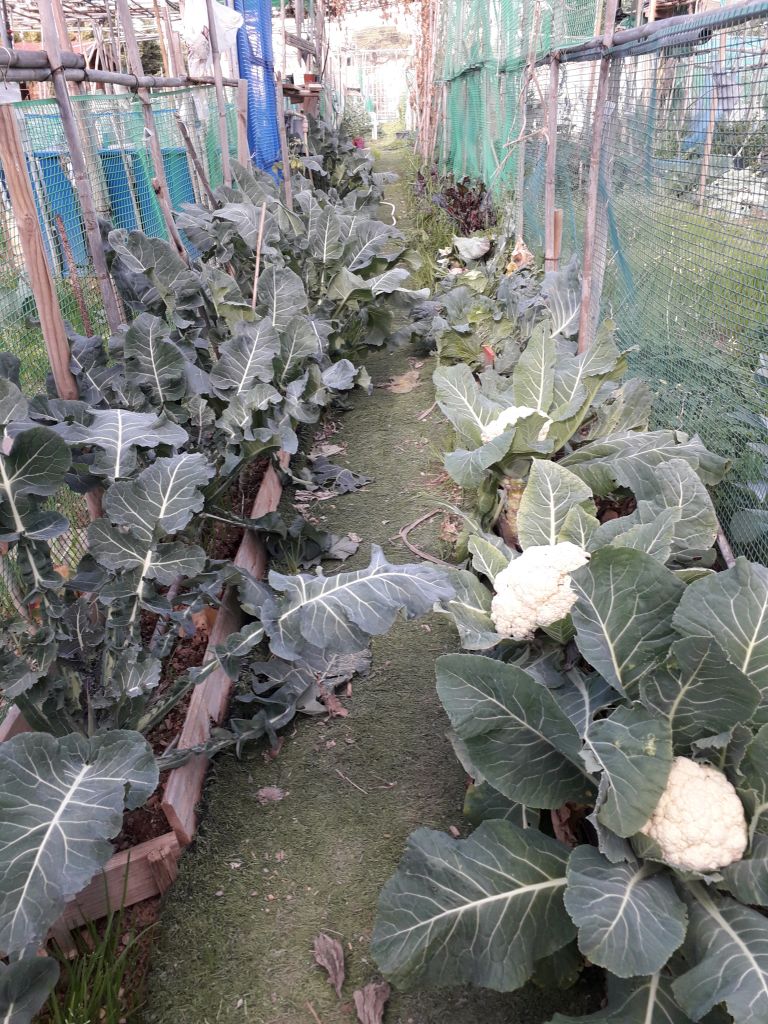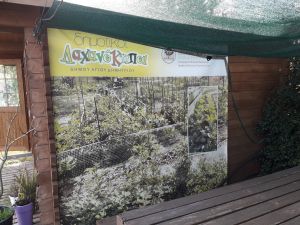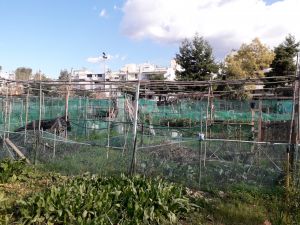Testing the CoSIE Roadmap in Community Gardens in Greece

In the framework of the CoSIE project and in order to test the co-creation roadmap, Panteion University is collaborating with the Municipality of Aghios Dimitrios and, more specifically, with the programme of the Community Gardens. For this purpose, the PUA team has already started organising local round tables and workshops, collecting stories from the beneficiaries and planning the following steps. The main purpose of the CoSIE approach is to involve more those citizens engaged in the Community Gardens so that decisions, changes and evaluation are produced with them and not for them by someone from above.
The actions developed in the selected area by the Health and Social Service of the Municipality, by the Organisation of Education, Social Solidarity and Protection, but also by voluntary groups, are invaluable and have brought significant results to the field of social solidarity. In critical times for the economy and society, such as the one Greece faced during the economic crisis, when the social role of the state was shrinking and the dramatic course of the Greek economy made the recession seem endless and unbearable for an ever-increasing portion of citizens, local authorities acted to dynamically meet the immediate and daily needs of their citizens, but also to contribute to the maintenance of social cohesion. Under these conditions the development of support structures such as the Social Meals, the Social Grocery, and the Social Pharmacy proved to be crucial on the local level of Aghios Dimitrios. The Community Gardens, however, was a different social policy programme. A structure that concerns not only society, but also the environment, ecology, respect for nature and environmental education and awareness among children and adults.
Today, through the Community Gardens, 45 families of the Municipality manage to cover their needs in terms of fruit and vegetables and in addition they offer 10% of their production to cover the needs of the Social Grocery of the Municipality, which supports many other families with financial problems. Community Gardens were a bold alternative intervention in the aggravated urban environment of the city of Aghios Dimitrios, a city densely populated with a significant lack of green spaces. An unstructured and non-buildable area was initially sought to cover this ambitious plan. The motivation was the growing need to enable residents to supplement the family goods directly from their own garden.


This programme started from scratch in the city of Aghios Dimitrios. The total area of 2.5 acres where it was decided to implement the project belonged to the Municipality. It was an unexploited area, with no strategic plan, in a fairly rundown neighbourhood on the edge of town. Through a specific study, an alternative was offered to this part of the municipal land. It was cleaned, divided into orchards and utilised in the best possible way, both for the beneficiary growers and for the locals. The implementation of the Community Gardens Programme was immediate and organised mainly using resources of the Municipality. Beneficiaries are selected based on socio-economic criteria: unemployment, income, marital status, etc. and with priority given to socially vulnerable groups. The total time of the right to use the land is 2 years. The cultivation in the Community Gardens is exclusively organic and this method is obligatory all participant growers. In addition, Organic Farming has been defined by the Rules of Operation as the only means of cultivation. The terms of the Rules of Procedure have been accepted by all beneficiaries upon receipt of their orchard and thus the quality of the crop is guaranteed.
The aim of the Municipality with this project is primarily the relief of low-income households, but also to offer an alternative outlet for citizens. In addition, the ecological and environmental benefits are multiple and very important. The creation of orchards in the densely populated environment of the city is an alternative green proposal, whilst upgrading the standard of living of the locals and aesthetically improving the area. The social benefits are also very important. It goes without saying that engaging in vegetable gardens helps to familiarise people with the land and cultivation, even motivating some of them to turn their professional interest towards this field, especially amongst the younger ones. This in essence is an action that creates ‘islands of collectivity’ in the local community. It brings together the citizens involved, people of different ages and cultures, who socialise and work creatively for the benefit of their families. It is important that a social structure at a local level helps the citizens to perceive themselves as a part of the natural environment, to discover the value of engaging with nature, to feel respect for it and to learn to protect it.
Writer: Alexandros Sakellariou, Panteion University of Social and Political Sciences
